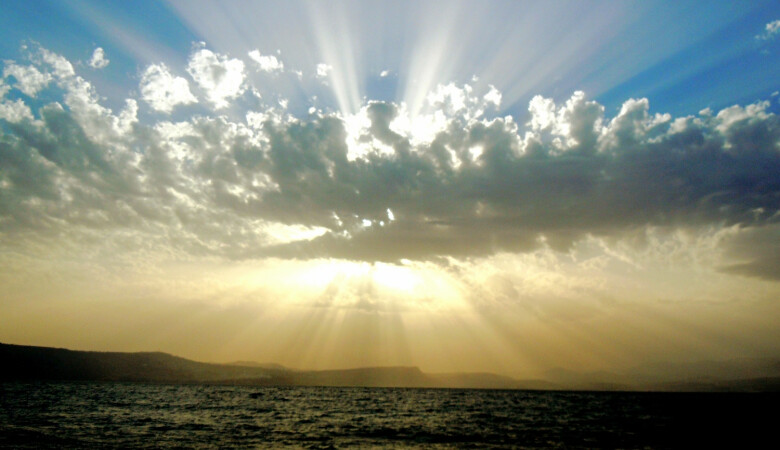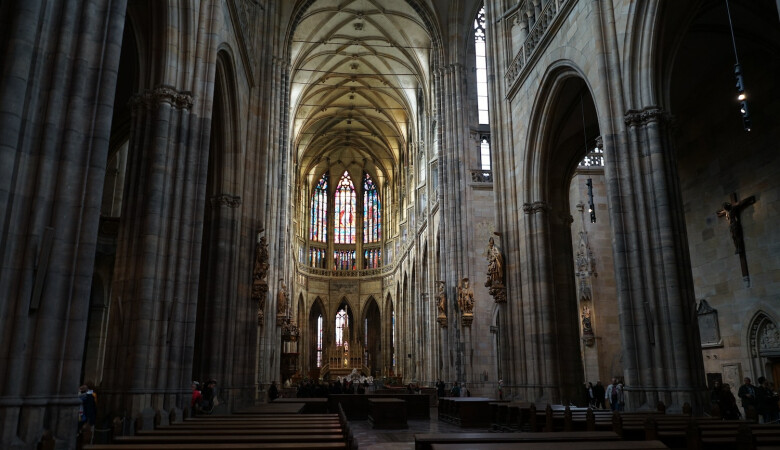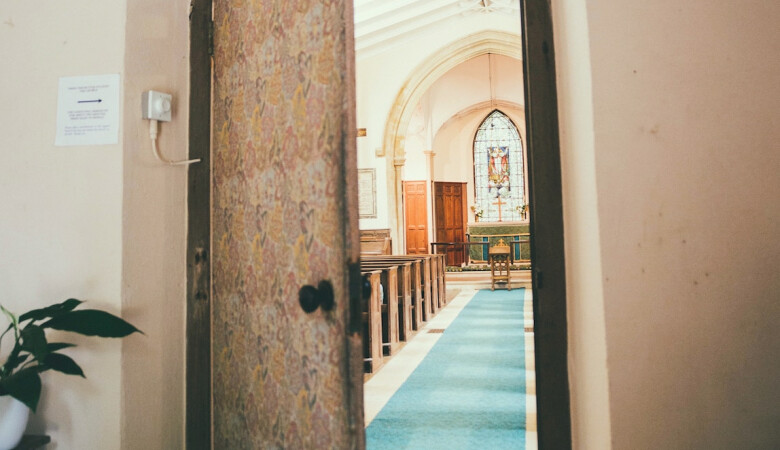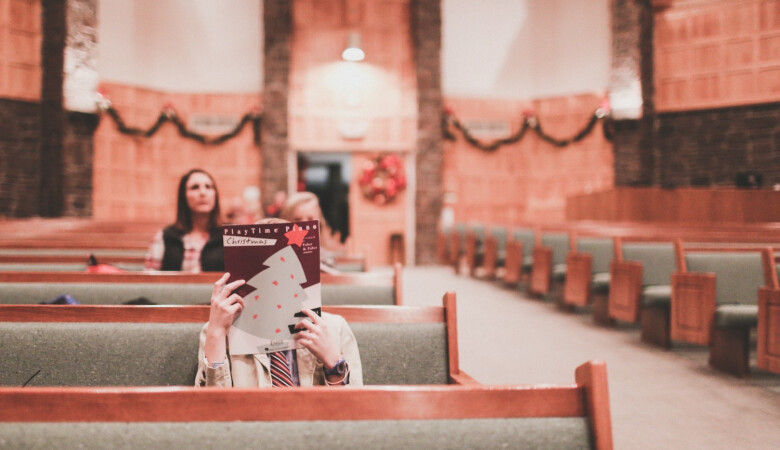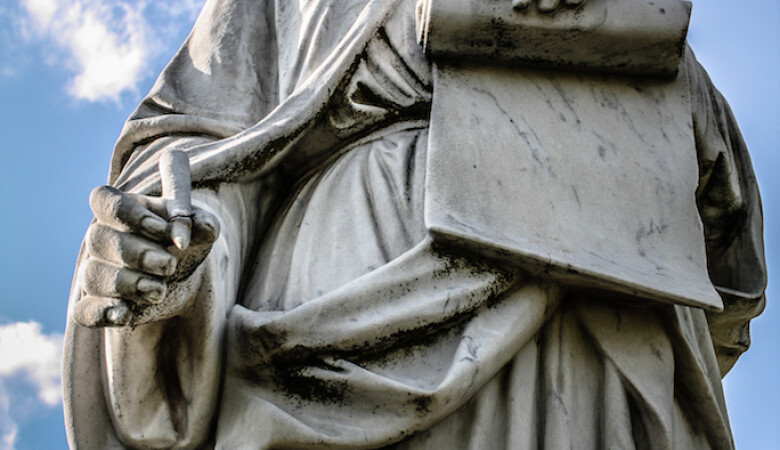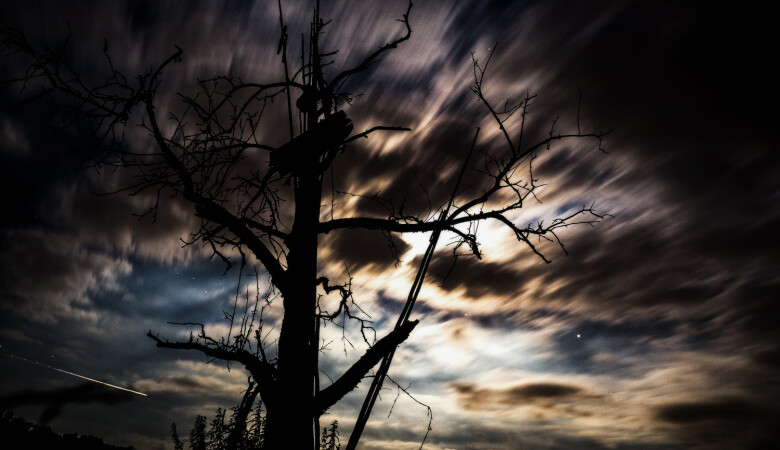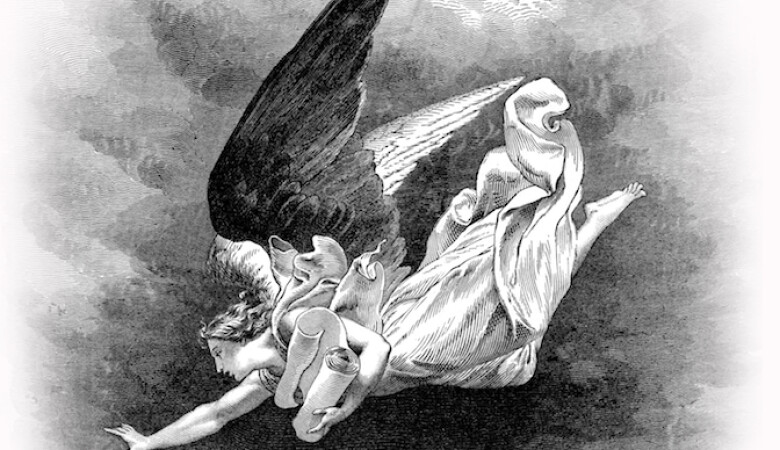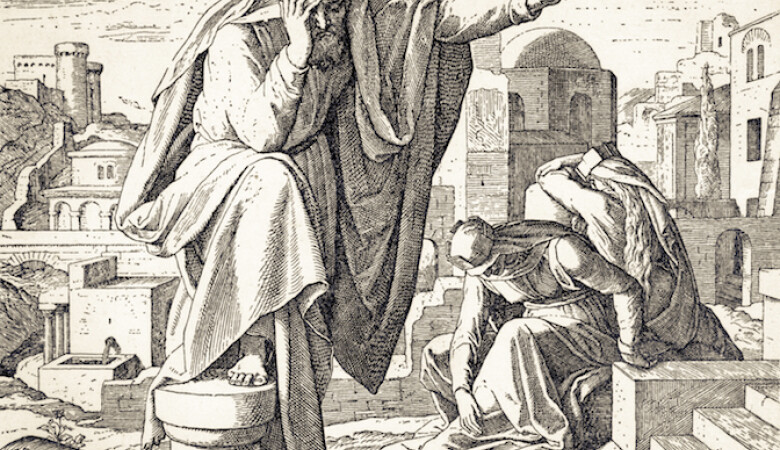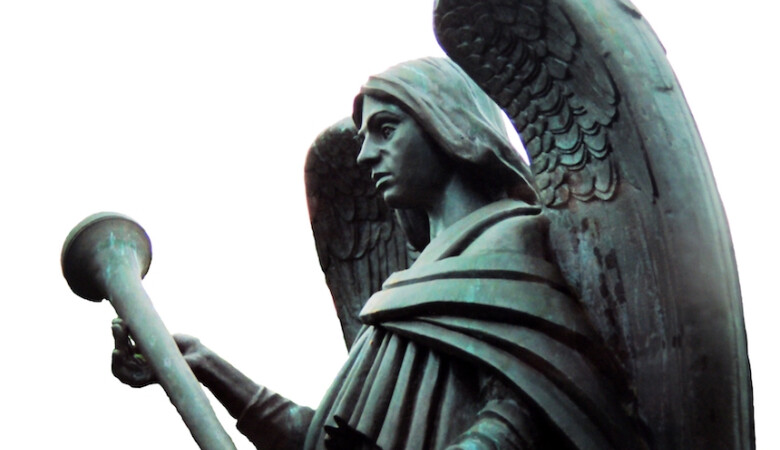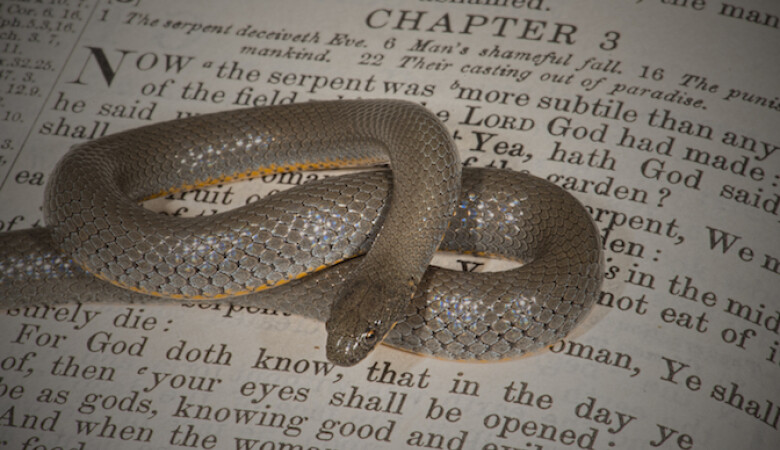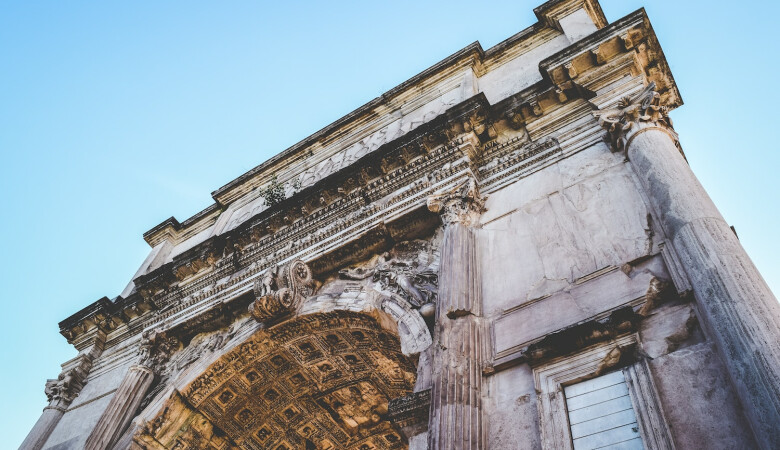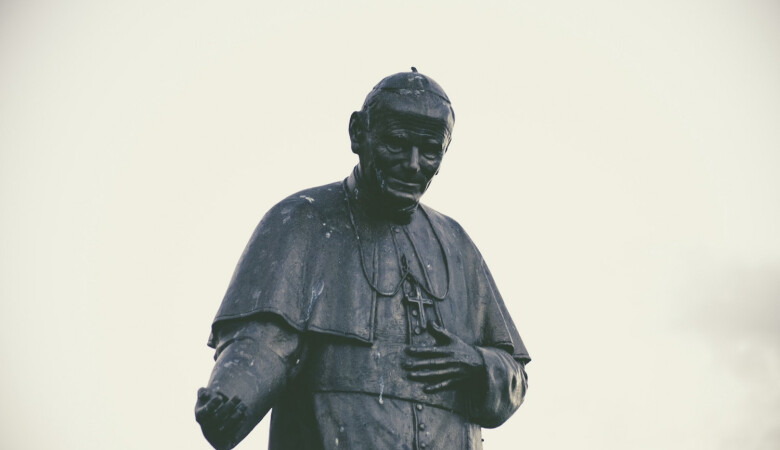The Lamb Opens the Seals - Part 2 (Revelation Sermon 12 of 49)
June 04, 2017 | Andy Davis
Revelation 6:1-17
Judgement Day, End Times, Judgment
Introduction
I desire every week that you would come hungry to have an encounter with the living God and Christ through the words of the text that we are studying. Faith is the eyesight of the soul by which we see invisible spiritual realities past, present and future. While Revelation is one of the most complicated and difficult books in the Bible to interpret with any sense of certainty and accurate understanding, no book of the Bible unfolds these mysteries as clearly. It is also one of the greatest books for revealing the glories of Christ. The first statement in the book says, “The revelation of Jesus Christ, which God gave Him to show His servants who He is, and also, those things that must soon take place…”
Review of Revelation 1-5
The Apostle John was in exile on the Island of Patmos off the coast of modern-day Turkey as punishment by the Roman Empire for his testimony about Jesus Christ. In the Spirit on the Lord’s Day, he had a vision of the resurrected and glorified Christ moving among seven golden lamp stands, representing his active, daily concern for local churches around the world. Revelation 2-3 are letters to the seven churches in Asia Minor — real churches that existed at that time but also represent various types and themes and patterns of local church ministry throughout all of church history.
John is invited to take an incredible journey detailed in Revelation 4. He sees a doorway and hears the voice of Jesus commanding him to “Come up here and I will show you what must take place after this.” He could never have obeyed that command by his own strength and power, but by the Spirit, he is able to obey. He goes through the doorway and sees a throne in Heaven — the central reality of the universe — on which Almighty God is seated. Twenty-four elders, four living creatures, and 100 million angels surround the throne; day and night, they celebrate and worship the greatness of God the Creator, the Sustainer of all things:“You are worthy, our Lord and God, to receive glory and honor and power, for you created all things, and by your will they were created and have their being.”
In Revelation 5, God holds a scroll in His right hand, sealed with seven seals. A mighty angel proclaims loudly “‘Who is worthy to break the seals and open the scroll?’ But no one in heaven or on earth or under the earth could open the scroll or even look inside it. I wept and wept because no one was found who was worthy to open the scroll or look inside. Then one of the elders said to me, ‘Do not weep! See, the Lion of the tribe of Judah, the Root of David, has triumphed. He is able to open the scroll and its seven seals.’ Then I saw a Lamb, looking as if it had been slain, standing at the center of the throne, encircled by the four living creatures and the elders.”
This shows the greatness and power of the Lamb, Jesus Christ and also his submission, willing to die, to have His blood poured out, for his Father’s purposes. A wave of celebration erupts as concentric circles of created beings praise Jesus in cascading worship “because you were slain, and with your blood you purchased for God persons from every tribe and language and people and nation.”
Two Approaches
In Revelation 6, Jesus begins to break open the seals on the scroll to initiate unfolding events on the earth. Jesus promises that John will see things that “must soon take place,” — the future. There are two different approaches to these chapters that reveal the future. One is to see everything as future only, both to John and to us; things that will come in the final seven-year Great Tribulation but have not yet begun. That is a valid way to interpret these events. However, the events described in the seals lend themselves to more depth and nuance that Jesus taught in Matthew 24 about the end times.
In Matthew 24, Jesus, in the final days of his ministry on earth, was in the middle teaching his disciples in what is known as the Olivet Discourse, or the Little Apocalypse. They emerged from the temple and the disciples, impressed with the massive stones of the temple and the magnitude of the temple itself, remarked about the stones. Jesus replied, predicting the destruction of Jerusalem, “‘Do you see all these things?… Truly, I tell you, not one stone here will be left on another; every one will be thrown down.’” Later they asked, “‘…when will this happen, and what will be the sign of your coming and of the end of the age?’” The triple question makes Matthew 24 a difficult chapter to interpret. Some parts of Jesus’ answer seem to refer to events related to the burning and destruction of the temple, while some parts seem to stretch across all of history to the end of the world.
A Pattern of Past and Future
As we compare the things he says in Matthew 24 to the opening of the seals, we see a helpful connection. In particular, in Matthew 24:37, Jesus says, “As it was in the days of Noah, so it will be at the coming of the Son of Man.” This is a key verse for interpreting eschatology, or end-times teaching: “As it was… so it will be.” In other words, historical events reflect events that will happen on a larger scale right before the Second Coming of Christ and the end of the world — not only the flood but many other cataclysmic events occur repeatedly.
The Four Horsemen
The first four seals contain the Four Horsemen of the Apocalypse. In these events, we see a connection with things that Jesus prophesied. For example, in Matthew 24:6-8, Jesus said, “You will hear of wars and rumors of wars, but see to it that you are not alarmed. Such things must happen, but the end is still to come. Nation will rise against nation, and kingdom against kingdom. There will be famines and earthquakes in various places. All these are the beginning of birth pains.” I call these “uncertain signs” because they happen in every generation. There has not been a single generation in which there were not wars and rumors of wars, famines and earthquakes in various places.
Jesus’ point is to encourage the church, that when we see these things, we should not conclude that redemptive history has gone off the rails. God is in charge; He said these things would happen. Jesus told his disciples, “I am telling you now before it happens, so that when it does happen you will believe that I am who I am.” [John 13:19] He wants us to trust in him and to know that he is on his throne and everything is right on schedule. There are connections to events that will occur repeatedly throughout history, but also unique details that go beyond anything we have ever seen in history, especially with the trumpet and bowl judgments. This gives us the “already/not yet” framework.
The First Seal
The first seal is broken and the first rider is unleashed. Revelation 6:1-2: “I watched as the Lamb opened the first of the seven seals. Then I heard one of the four living creatures say in a voice like thunder, “‘Come!’ I looked, and there before me was a white horse! Its rider held a bow, and he was given a crown, and he rode out as a conqueror bent on conquest.” The Lamb that was slain, Jesus, who alone was found worthy to open its seals, holds the scroll that was in God’s right hand. Now, with his sovereign power, his right to rule history, he breaks open these seals successively. As he breaks open each of the seals, he initiates events on earth.
These Horsemen are mounted enemy warriors, bent on destruction. Imagine the terror of a foot soldier feeling the ground shake under his feet and seeing a half-ton beast approaching at 20-30 miles per hour or more. Yet, this first Horseman is different than the others — dressed in white, similar to the description of Christ’s Second Coming in Revelation 19 — which leads some interpreters to believe this horseman represents the spread of the Gospel. Jesus said in Matthew 24:14, “This Gospel of the Kingdom will be preached in the whole world as a testimony to all nations.” That is true, but I do not think we should interpret this first Horseman that way. Rather, the Four Horsemen should be seen together as judgment by God on the human race. It would be strange to pick out the first one to make him intrinsically different than the other three.
The big themes in Revelation become more clear the more one studies them: God’s sovereign power, His holiness, His hatred of sin, His protection of the Church, His love for the redeemed, their final salvation. The details are the difficult part. When I say “I think…” regarding any detail in this book, it is my interpretation, but I see a connection with some subtle but important themes from the book of Daniel with the imagery here.
This first horseman, dressed in white, wearing one crown, holding a bow but carrying no arrows, seems to line up with the deceptive nature of the antichrist figures in the book of Daniel. In Daniel 11, one particular precursor to the Antichrist stands out. Here, the principle of “as it was, so it will be” is especially clear and true with the antichrists. There are antichrists in every generation, and there will be a final Antichrist.
Two types of antichrist have prevailed throughout history: doctrinal antichrists, cult leaders who teach false doctrine; and political antichrists who use their power and authority to suppress and oppress and persecute the Church. Sometimes they are combined: religious leaders may gain political power, or political leaders may require religious devotion. Those are all antichrists. Many antichrists are coming, but a final one is coming.
Antiochus Epiphanes, a specific descendant of those who followed after Alexander the Great, acts out many satanic antichrist type characteristics that Daniel 11 predicts. He takes over a kingdom by guile and treachery, deceptiveness and lies, without a single arrow shot being fired. We have seen this pattern throughout history. Hitler took over Czechoslovakia without a shot being fired with the Munich Accords. This rider brings a similar deceptive peace. Soon after, the second horse appears and the promise of peace is broken, bringing war.
The Second Seal
The second rider, War, is on a red horse. Revelation 6:3-4 “When the Lamb opened the second seal, I heard the second living creature say, ‘Come!’ [Chain of command: Jesus acts or speaks, another heavenly creature acts and then things happen.] Then another horse came out, a fiery red one. Its rider was given power to take peace from the earth and to make men slay each other. To him was given a large sword.” The false peace gives way to open warfare which makes sense because the Antichrist will take over the whole world. Revelation 13:7, says “He was given power to make war against the saints and to conquer them. And he was given authority over every tribe, people, language and nation.”
If you know anything about the history of the world, tribes, languages, people and nations do not give up power easily. They will fight, but in the end they will lose and there will be one ruler over the entire earth. Given this red horse, he gains power by warfare. There are already wars and rumors of wars, false Christs, wicked rulers, rise and fall of empires one after the other in every generation, but those are not yet signaling the end. They are dress rehearsals for the final act with the second horse.
The Third Seal
The third seal is broken and the third rider is unleashed — Famine. Verse 5-6 say, “When the Lamb opened the third seal, I heard the third living creature say, ‘Come!’ I looked, and there before me was a black horse! Its rider was holding a pair of scales in his hand. Then I heard what sounded like a voice among the four living creatures, saying, ‘A quart of wheat for a day's wages, and three quarts of barley for a day's wages, and do not damage the oil and the wine!’” This is clearly a picture of famine, which makes sense. The connection between warfare and famine is clear: people are unable to plow fields, sow seeds, tend crops, harvest, and distribute. They are either terrified or dead, and famine results. However, the detail of the oil and the wine may refer a future detail of wealth and luxury in which those at the highest level of the economic scale are protected from this famine, but others without such means will suffer.
The Fourth Seal
The fourth seal is broken. This rider is Death. “When the Lamb opened the fourth seal, I heard the voice of the fourth living creature say, ‘Come!' I looked, and there before me was a pale horse! Its rider was named Death, and Hades was following close behind him. They were given power over a fourth of the earth to kill by sword, famine and plague, and by the wild beasts of the earth.” Again, see Christ initiate, unleashing death on the earth. He holds the keys of death and the grave. To us he is Lamb — gentle, tender, kind-hearted; he shed his blood for us and protects us. But to unbelievers, the wicked, he is Lion. Therefore, at the end of this chapter is the strange phrase, “the wrath of the Lamb.” Jesus has the right and power to unleash death on earth at a scale unprecedented in history.
This horse is pale — the Greek here is chloros, meaning “yellowish-green, from which we get “chlorine”, which is pale yellowish-green at room temperature, and “chlorophyll”, which makes plants green. This horse has a pale sickly greenish tint of death. The grave, Hades, follows close behind, bringing immeasurable slaughter — one quarter of those who live on earth. The estimate of the death toll of World War II is 60 million — about 2.6% of the world's population, though some may have died from disease rather than directly from war. That shows how great the carnage from this horse will be — roughly 10 times that level of carnage with an even greater world population will bring much more than 10 times the death toll. It is staggering. Yet as terrible as all of this is, Jesus says, Matthew 24:8 “All these are the beginning of birth pains.” The judgments that follow, with the trumpets and the bowls, will be far worse than any of these things described up to this point.
The Fifth Seal
Already and Not Yet
Matthew 24:9-10 continues, “Then you will be handed over to be persecuted and put to death, and you will be hated by all nations because of me. At that time many will turn away from the faith and will betray and hate each other…” Jesus is talking about persecution of his messengers, which brings us to the fifth seal. Revelation 6:9 says, “When He opened the fifth seal, I saw under the altar the souls of those who had been slain because of the Word of God and the testimony they had maintained.” Again, the Lamb initiates these events. He opens the fifth seal, resulting in the slaughter of His own people, martyrs whose blood soaks the earth. It is mind-boggling, hard for us to conceive, but true. They are slaughtered because of the Word of God and the testimony they maintain, testifying to their faith in Christ. Death is their earthly reward. They were hated by their message.
This is a major theme in the Book of Revelation — the witnesses of Jesus courageously standing before satanic opposition, testifying to Jesus Christ and the Gospel, suffering. The Lord is vigorously motivated to bring justice as a result of their suffering; the martyrdom of His precious people is of intense interest to him. It is part of His sovereign plan for the advance of the Gospel. Jesus said to Pontius Pilate, “My kingdom is not of this world.” It is a different kind of kingdom, so it will not advance the same way all the other kingdoms advanced.
Jesus gave the principle of Kingdom advancement in John 12:24, speaking first of Himself, but then of all of us who are is His witnesses. He says, “Truly, truly, I say to you, unless a grain of wheat falls into the earth and dies, it remains alone; but if it dies, it bears much fruit.” This kingdom advances not by killing but by dying, starting with Christ. Much fruit flows from the death of His messengers and servants. It has advanced throughout history where people have been willing to die. Relatively few witnesses are physically martyred, but Paul says in another place, “I die daily.” It feels like death all the time to be a faithful witness to Jesus Christ, even if you don't physically die as a martyr.
Romans 12 says we are to present our bodies as living sacrifices, holy and pleasing God. Witnesses for Christ experience ongoing death, and Paul celebrates it. He says it is a glorious thing. Colossians 1:24 says, “Now I rejoice in what was suffered for you, and I fill up in my flesh what is still lacking in regard to Christ's afflictions, for the sake of his body, which is the church.” He does not mean there is anything lacking in the atoning work of Christ. He accomplished our redemption on one day in history, shedding his blood for everyone who would be saved in every generation. But that atonement is applied by messengers that are filled with the Spirit and go out and are willing to suffer and die.
That is how the church has advanced for 20 centuries. Martyrs have shed their blood in every generation for the love they had for Christ, for the courage of their bold witness for Christ. Tertullian said early on in the struggle against the Roman Empire, the very ones that were persecuting the Apostle John, “The blood of martyrs is seed for the church.” The more of us you kill, the more of us there will be. However, at the end of the world there will be an exponential increase in this kind of suffering. The price of simple faithfulness to Christ will increase exponentially. The Beast from the Sea, the Antichrist, will require people to get the mark of the beast to buy and sell. Those who are not willing to receive it face oppressive economic disadvantage and eventually death.
Daniel 7 depicts the concept of “already/not yet” with the figure of the horn and one of the beasts on the shore, also pictured in Revelation 13. Out of the sea come four beasts, one after the other, which represent massive world empires, and at last, one final empire. Daniel seeks to understand the fourth beast and the horn that conquered the other horns and behaved strangely. He receives this answer in Daniel 7:20-22: “I also wanted to know about the ten horns on its head and about the other horn that came up, before which three of them fell-- the horn that looked more imposing than the others and that had eyes and a mouth that spoke boastfully. As I watched, this horn was waging war against the saints and defeating them, [absorb that thought; this is why Jesus told us ahead of time, so we will not be stunned when the Antichrist slaughters thousands of Christians] until [praise God for that word] the Ancient of Days came and pronounced judgment in favor of the saints of the Most High, and the time came when they possessed the kingdom.” Amen. Hallelujah.
But there is a hard journey to travel between now and then. Daniel 7:24-25 says, “After them another king will arise, different from the earlier ones; he will subdue three kings. He will speak against the Most High [words of blasphemy], and oppress his saints and try to change the set times and the laws. The saints will be handed over to him for a time, times and half a time [three and a half years].” The kingdom of the Antichrist will be a reign of terror for the saints of God alive at that time. They will run for their lives and hide in caves and other locations to survive. Jesus said, “If those days had not been cut short, no one would survive, but for the sake of the elect, those days will be shortened.”
They will refuse to receive the mark of the beast, so they cannot buy or sell. They will be men and women of whom the world is not worthy, as Hebrews 11:38 says: “…wander in deserts and mountains, and in caves and holes in the ground.” But these, in this fifth seal, are dead. They have been killed. The slaughtered saints are seen under the altar in Heaven. This picture is well known to any students of the Old Testament. Anyone in trouble, running for his life, could hold on to the horns of the altar and cry out to God for protection and mercy. The saints under the altar are pleading in the same way to God for mercy and for protection.
They did not receive the miraculous protection and deliverance they sought on earth. They died, and there they are up in Heaven crying out to God. They are already under a blessing that Jesus said in Matthew 5:11-12, “Blessed are you when people insult you, persecute you and falsely say all kinds of evil against you because of me. Rejoice and be glad, because great is your reward in heaven, for in the same way they persecuted the prophets who were before you.”
The Cry for Vengeance
Verse 10 says, “They called out in a loud voice, ‘How long, Sovereign Lord, holy and true, until you judge the inhabitants of the earth and avenge our blood?’” They yearn for vengeance. This has long been a cry of God’s suffering people. Many Psalms ask the same question. God’s providence is difficult to interpret; His ways are beyond tracing out, and it is painful to wait. Psalm 94:3 says, “How long will the wicked, O LORD, how long will the wicked be jubilant?” Or Psalm 74:10-11 “How long will the enemy mock you, O God? Will the foe revile your name forever? Why do you hold back your hand, your right hand? Take it from the folds of your garment and destroy them!”
A cry for vengeance seems wrong on the surface, but it is not unworthy to seek it for wicked persecutors of the Church. These martyrs are not admonished or told they should have a higher view or a better outlook. It is completely appropriate. It is understandable to struggle to comprehend the clear depictions of the outpouring of God’s wrath. We genuinely yearn for Him to show grace and mercy to our enemies. Jesus, even on the cross, said, “Father forgive them, for they know not what they do.” Stephen, when he was dying said, “Lord, do not hold this sin against them.”
Jesus taught us to pray for our enemies and those who persecute us. He taught us to turn the other cheek. The Apostle Paul, persecuted viciously, mostly by his own countrymen, said, “I have great sorrow and unceasing anguish in my heart. For I could wish that I myself were cursed and cut off from Christ for the sake of my people, those of my own race…” That is completely right, but so is this. On Judgment Day, we will have clarity — the wheat and the weeds will be exposed — and yearn for the wrath of God to be poured out on those who will not ever repent and believe and follow.
The fact that prayers for deliverance seem to be unanswered presents another acute challenge. Severe persecution of the Church has been and continues to be the norm: arrest, torture and death by beheading and other means. Believers pray and pray for deliverance but they are not set free. Family members, friends and the worldwide Church wonder why God does not deliver them.
A parable in Luke 18 makes the question more acute: “Jesus told his disciples a parable to show them that they should always pray and not give up. He said: ‘In a certain town there was a judge who neither feared God nor cared what people thought [not a good characteristic for a judge]. And there was a widow in that town who kept coming to him with the plea, “Grant me justice against my adversary.’” For some time he refused. But finally he said to himself, “Even though I don’t fear God or care what people think, yet because this widow keeps bothering me, I will see that she gets justice, so that she won’t eventually come and attack me!”’ And the Lord said, ‘Listen to what the unjust judge says. And will not God bring about justice for his chosen ones, who cry out to him day and night? Will he keep putting them off? I tell you, he will see that they get justice, and quickly.’”
Twenty centuries of suffering, twenty centuries of blood, twenty centuries of crying out, asking “Why?” and “How long?” The desire for justice and vengeance is completely godly. We must embrace it as a major theme in Revelation to avoid recoiling from or softening its message. It lines up with the very thing God is planning to do, to vindicate His suffering people. Romans 12:19-20 says, “Do not take revenge, my friends, but leave room for God’s wrath, for it is written: ‘It is mine to avenge; [a famous statement] I will repay,’ says the Lord. On the contrary: ‘If your enemy is hungry, feed him; if he is thirsty, give him something to drink.’ In doing this, you will heap burning coals [of wrath] on his head.’” We could add the idea that he might be converted in the process. Saul was breathing out murderous threats against the Lord’s disciples, but the kindness of Stephen and of those he dragged off to prison put goads in his heart that led him to salvation.
God has promised He will repay. Nedo book in the Bible so clearly depicts God repaying the wicked for the way they attacked and murder the righteous as does the book of Revelation. Revelation 16:4-6 says, “The third angel poured out his bowl on the rivers and springs of water, and they became blood. Then I heard the angel in charge of the waters say: "You are just in these judgments, you who are and who were, the Holy One, because you have so judged; for they have shed the blood of your saints and prophets, and you have given them blood to drink as they deserve.’” It is a clear link between the wrath that comes and the persecution of the Church.
These martyrs under the altar are aware of the events happening on earth. They are tracking and they know that vengeance has not come yet. (We are surrounded by a great cloud of witnesses; the things we do are in full view of a heavenly audience.) God refrains from punishing the wicked, not only because some of them are elect and will later come to Christ, but als because He is displaying His unlimited patience. Romans 9:22 says, “What if God, choosing to show his wrath and make his power known, bore with great patience the objects of his wrath-- prepared for destruction?”
He is bearing with their wickedness with great patience. The purpose of His patience is to lead them to repentance and salvation through faith in Christ. 2 Peter 3:15 says, “Bear in mind that our Lord’s patience means salvation.” Some of the elect begin as vicious persecutors and end up as brothers and sisters in Christ. We hope for that, but these wicked people do not use the patience of God properly. They only harden their hearts and store up more wrath. Romans 2:4-6 says, “…do you show contempt for the riches of his kindness, tolerance and patience, not realizing that God's kindness leads you toward repentance? But because of your stubbornness and your unrepentant heart, you are storing up wrath against yourself for the day of God's wrath, when his righteous judgment will be revealed. God ‘will give to each person according to what he has done.’”
The Martyrs Comforted
In verse 11, the martyrs are comforted and partially rewarded. “Then each of them was given a white robe, and they were told to wait a little longer, until the number of their fellow servants and brothers who were to be killed as they had been was completed.” The white robe represents the atoning work of Jesus Christ. Even these martyrs, heroes of the faith, still were sinners saved by grace. They still had sins needing to be cleansed, they still had nakedness needing to be covered. They are given the gifts of imputed righteousness and forgiveness and atonement.
Heaven is a place of waiting. The saints in Heaven are not fully saved, not fully rewarded yet. All dead saints are absent from the body, present with the Lord. They are waiting for resurrection bodies, which is the final piece of salvation. But these are also waiting for their vindication against their murderers. The Lord tells them they are to wait until the full number of martyrs comes in. Math, orderliness, is a reflection of the character of God — He is the great mathematician and ordains the exact limit of everything. He has numbered everything, including the hairs on our heads. “All the days ordained for me were written in Your book before one of them came to be.” [Psalm 139] The martyrs are numbered too. When that full number comes in, the end will come.
The Sixth Seal
The sixth seal is broken, bringing the end of this Heaven and earth. Revelation 6:12-17 says, “I watched as he opened the sixth seal. There was a great earthquake. The sun turned black like sackcloth made of goat hair, the whole moon turned blood red, and the stars in the sky fell to earth, as late figs drop from a fig tree when shaken by a strong wind. The sky receded like a scroll, rolling up, and every mountain and island was removed from its place. Then the kings of the earth, the princes, the generals, the rich, the mighty, and every slave and every free man hid in caves and among the rocks of the mountains. They called to the mountains and the rocks, ‘Fall on us and hide us from the face of him who sits on the throne and from the wrath of the Lamb! For the great day of their wrath has come, and who can stand?’”
The End of the Universe
These sights are breathtaking and overwhelming. This is the end of the universe as we know it. The earth itself is shaking from under their feet, and the sky — the sun, moon, and stars — is rolled up like a scroll. Copernicus was astronomically correct in the 16th century that the earth revolves around the sun, not the other way around. But when it comes to purpose, to history, even the celestial bodies, sun, moon and stars are earth-centric. They were created to mark seasons and days and years and to give light to the earth. Genesis 1:14 says. “And God said, ‘Let there be lights in the expanse of the sky to separate the day from the night, and let them serve as signs to mark seasons and days and years…’” But when the events of human history have run their course, the sun, the moon and the stars will end their existence in the heavens. The universe exists for an earthly purpose.
Here at the end, the sun turns dark, the moon turns blood red, the stars fall from the sky like figs from a fig tree. This is difficult to imagine. The stars are incomprehensibly distant, but we know that God numbers each of them and calls each by name. Because of His power, none of them is missing. He can do what He wants with His stars. He has that kind of power.
The Great Day of God’s Wrath
The great day of God’s wrath is terror to earth’s inhabitants. God has an active wrath against sin, not a mild indifference toward it. He is angry, enraged. Psalm 18:7-13 says, “The earth trembled and quaked, and the foundations of the mountains shook; they trembled because he was angry. Smoke rose from his nostrils; consuming fire came from his mouth, burning coals blazed out of it. He parted the heavens and came down; dark clouds were under his feet. He mounted the cherubim and flew; he soared on the wings of the wind. He made darkness his covering, his canopy around him-- the dark rain clouds of the sky. Out of the brightness of his presence clouds advanced, with hailstones and bolts of lightning. The LORD thundered from heaven; the voice of the Most High resounded.” That is the wrath of God against earth for the sinfulness of the human race.
Scripture tells us that God expresses His wrath every day, but we cannot discern it whether an event constitutes His wrath. Two people die in a hospital; one is a saint going to Heaven, the other is receives the wrath of God for sin. We have no way of knowing, but it happens every day. In this passage, we see a full open display of the wrath of God. Nobody wonders about it. God patiently defers the full display of His wrath on the earth’s wicked inhabitants, reserved it for this day, when His righteous judgment will be revealed. As the sixth seal is opened, the inhabitants of the earth recognize that it has come at last, and they are terrified of it.
Every unconverted person on the face of the earth, across all socio-economic and government levels, cry out one vast pagan prayer to the mountains and the rocks, not to God. Revelation 6:15-17 says, “Then the kings of the earth, the princes, the generals, the rich, the mighty, and every slave and every free man [This is everyone: leaders, pillars, kings, princes, generals, rich and mighty = elites; every slave and free man = everyone else] hid in caves and among the rocks of the mountains. They called to the mountains and the rocks, ‘Fall on us and hide us from the face of him who sits on the throne and from the wrath of the Lamb! For the great day of their wrath has come, and who can stand?’”
Only One Refuge
There is only one refuge and they missed it. They are calling to the mountains to hide them, to give them refuge, but the earth will disclose the blood shed upon it. It is not their ally to hide them in their wickedness; no one can hide from the eyes of the Lord. The God we worship is omni-present — He is everywhere fully. He is omniscient — He knows everything fully. He is omnipotent — He can do anything He wants with His creation. He has that kind of power. There is no escape.
Amos 9:1-6 says, “I saw the Lord standing by the altar, and he said: ‘Strike the tops of the pillars so that the thresholds shake. [From top down like an earthquake.] Bring them down on the heads of all the people; those who are left I will kill with the sword. Not one will get away, none will escape. Though they dig down to the depths of the grave, from there my hand will take them. Though they climb up to the heavens, from there I will bring them down. Though they hide themselves on the top of Carmel, there I will hunt them down and seize them. Though they hide from me at the bottom of the sea, there I will command the serpent to bite them. Though they are driven into exile by their enemies, there I will command the sword to slay them. I will fix my eyes upon them for evil and not for good.’ The Lord, the LORD Almighty, he who touches the earth and it melts, and all who live in it mourn — the whole land rises like the Nile, then sinks like the river of Egypt — he who builds his lofty palace in the heavens and sets its foundation on the earth, who calls for the waters of the sea and pours them out over the face of the land-- the LORD is his name.”
The mountains and rocks and caves will not be an escape from the great day of the wrath of God and the of the Lamb. We must believe by faith through hearing this Word on this beautiful sunny Sunday, with everything continuing as it always does, that judgment will come, or we will not seek refuge. Nothing will prove it in advance. There is only one refuge, and his name is Jesus. Those who believe in and flee to Christ will be able to stand. He is our lightning rod that takes the strike of the wrath of God and carries it safely away from us. Now is the time to flee, before these things happen. Romans 3:24-25 says, “Sinners are justified freely by His grace through the redemption that is in Christ Jesus. God presented Him as a propitiation [a sacrifice of blood that satisfies and removes His wrath] through faith in His blood, to demonstrate His righteousness.” Proverbs 18:10 says, “The name of the LORD is a strong tower; the righteous run to it and are safe.”
How the Sixth Seal Relates
The sixth seal is a key interpretive text to the rest of the book. At the end of the sixth seal, the sky, mountains, and islands are gone. How, then, can this happen in Revelation 8:12? “The fourth angel sounded his trumpet, and a third of the sun was struck, a third of the moon, and a third of the stars, so that a third of them turned dark. A third of the day was without light, and also a third of the night.” Revelation tells the whole story and circles back to tell the same story with more detail, and then again with even more detail.
Applications
Christ is Sovereign
First, understand the sovereign power of Jesus Christ over the unfolding of redemptive history. There are so many distressing events daily — suffering, pain, death. The evil is unspeakable. When a perpetrator of evil dies, what can be done? God has the answer, but remember: His plan is on schedule; Jesus will initiate these judgments on earth at the right time. Trust in that.
See the Pattern
Second, see the pattern of “already, not yet.” We will experience some things in our lifetime that mirror some of the events in Revelation, even if Jesus does not return for another 200 years. “As it was… so it will be.”
The Internal and External Journeys
Third, prepare for the end of the universe. 2 Peter 3:11-12 says, “Since everything will be destroyed in this way, what kind of people ought you to be? You ought to live holy and godly lives as you look forward to the day of God and speed its coming.” That is the internal journey of holiness and sanctification and the external journey of evangelism and missions. Those listening should be ready to tell people who are lost that there is a refuge and a need to flee to it. They will not see it — regular every day life seems to continue — but the wrath of God is coming, and now is the time to flee.
The Place of Martyrs
Fourth, recognize the place of martyrs in God’s plan. Do not wonder where He is when martyrs die despite the prayers of the Church. It is true that Peter was delivered by the prayers of the Church, but in that same chapter, James was beheaded. God did not love one more than the other. He has different plans for each person, including using the blood of martyrs to spread the Gospel. Be willing to die daily. We will probably not die as physical martyrs, but we can die to self when we share the Gospel with an unsaved relative, a neighbor, a co-worker, or a total stranger.
Embrace the Doctrine of the Wrath of God for Sin
Fifth, embrace the doctrine of the wrath of God for sin. God is not mild about this. He has an aggressive anger about the way that the world treats His church and the way that sin goes on.
Flee to Christ!
Finally, to those of you who know that you are outside the grace of God, I have preached the Gospel to you today. I plead with you, today is the day of salvation. This is the time, when everything looks normal, to believe that this is coming. This is the time to flee to Christ.
Closing Prayer
Father, thank you for the things that we learned in this incredible chapter, for the grace of the Holy Spirit who gives us clear instructions and interpretations that tell us what kind of lives we should live. Father, help us to hate the sin that will bring this wrath on the earth, sins of sexual immorality, sinful pride, anger and idolatry. Help us to hate these things in our lives and to grieve against them and to fight against them by the power of the Spirit. Help us, O Lord, to reach out with boldness here in Durham, Chapel Hill, Raleigh, wherever we are, to share the Gospel with people who are as yet on the outside. Help us to have compassion on them and bring them in. In Jesus’ name. Amen.

